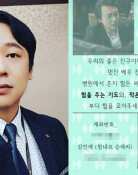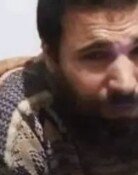Killing Fields trial
The Killing Fields comprise sites in Cambodia where large numbers of people were killed and buried by the communist regime Khmer Rouge from 1975 to 1979. Analysis of 20,000 mass grave sites by Yale University indicates at least 1,386,734 people were killed. Escaping from the regime, Cambodia-born journalist Dith Pran coined the term "killing fields" based on the dead bodies and devastation he saw while escaping to Thailand. His escape was later portrayed in books and the Hollywood movie "The Killing Fields."
After assuming power, the Khmer Rouge shut down factories, hospitals and schools. Almost the entire intellectual elite were executed, even people wearing glasses (which according to the regime meant that they were literate). The Khmer Rouge said parents were tainted with capitalism and considered children as central to the revolution. Children were consequently separated from their parents, placed in labor camps, and were taught to believe that anyone not conforming to Khmer Rouge laws were corrupt enemies. The children were taught methods of torture and used in the torture and killing of parents.
The radical political activist Noam Chomsky is famous for his support of the Khmer Rouge. He said the massacres resulted from revengeful farmers and uncontrollable soldiers, but the Khmer Rouge was later found to be behind the atrocities. The four most senior surviving members of the murderous regime -- Khieu Samphan, Nuon Chea, Ieng Sary and Ieng Thirith -- went on trial for war crimes Monday at the U.N.-backed war crimes tribunal in the Cambodian capital of Phnom Penh. Known as "Brother Number One," Khmer Rouge leader Pol Pot surrendered in 1998 but died before he could be brought to trial.
The killing fields trial came 30 long years after the massacres. Crimes against humanity should never have a statute of limitations. The International Criminal Court issued an arrest warrant to Libyan leader Moammar Gadhafi on charges of killing hundreds of protesting civilians. North Korean leader Kim Jong Il must be feeling a prick in his conscience. More than 150,000 North Koreans are being held in concentration camps and millions of North Koreans died of hunger in the 1990s.
Editorial Writer Song Pyeong-in (pisong@donga.com)







